
Cataderm Cream
Manufacturer
Anhox Healthcare Pvt Ltd
Salt Composition
Clobetasol (0.05% w/w)
Key Information
Short Description
Cataderm Cream is a steroid used to treat various skin conditions such as dermatitis, eczema, and allergies, reducing swelling, redness, and itchiness of the skin.
Dosage Form
Cream
Introduction
Cataderm Cream belongs to a group of medicines called steroids. It is used to treat various skin conditions such as dermatitis, eczema, and allergies. It works by reducing swelling, redness, and itchiness of the skin and prevents further irritation.
Directions for Use
This medicine is for external use only. Use it in the dose and duration as advised by your doctor. Check the label for directions before use. Clean and dry the affected area and apply the cream. Wash your hands after applying unless hands are the affected area.
How it works
Cataderm Cream is a steroid. It works by blocking the production of certain chemical messengers that make the skin red, swollen, and itchy.
Quick Tips
Apply as a thin film two or three times daily or as advised by your doctor. Don't use it more often or for longer than advised by your doctor. Don't cover the area being treated with airtight dressings such as bandages unless directed by a doctor. If you think the area of skin you are treating has become infected, stop using Cataderm Cream and consult your doctor. Consult your doctor if your skin condition has not improved after four weeks of treatment. Do not use it for more than 4 consecutive weeks at a time.
Related Medicines
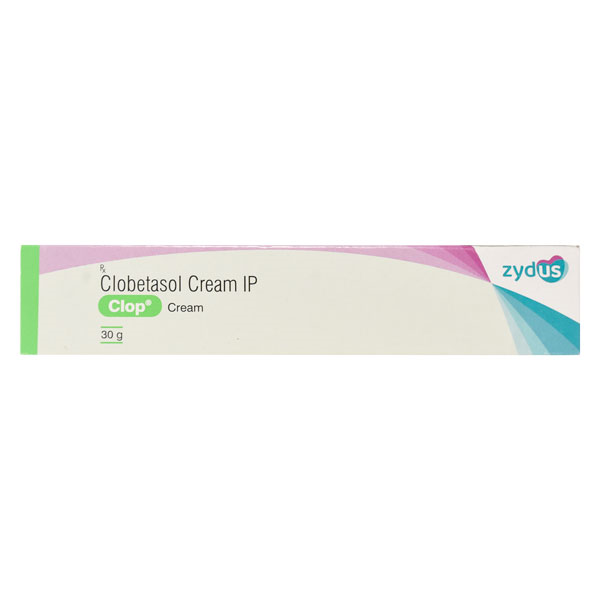
Clop Cream
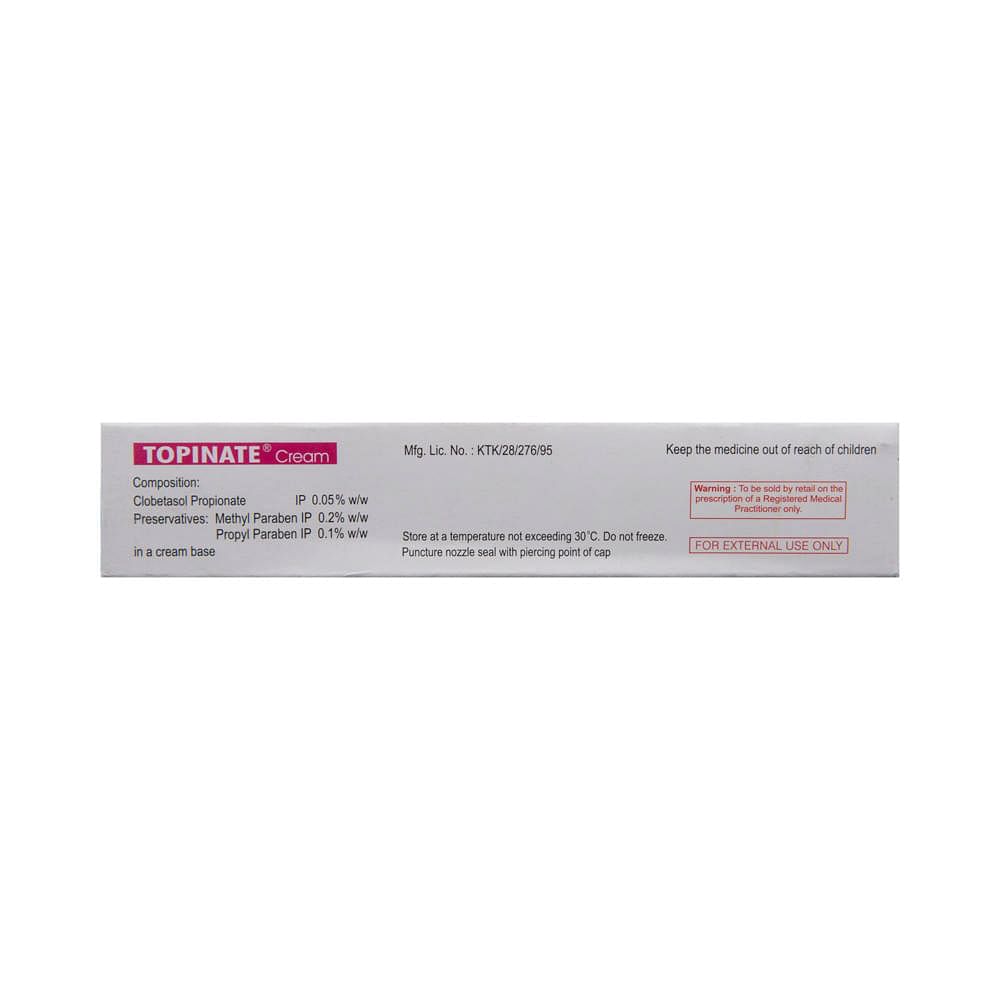
Topinate Cream
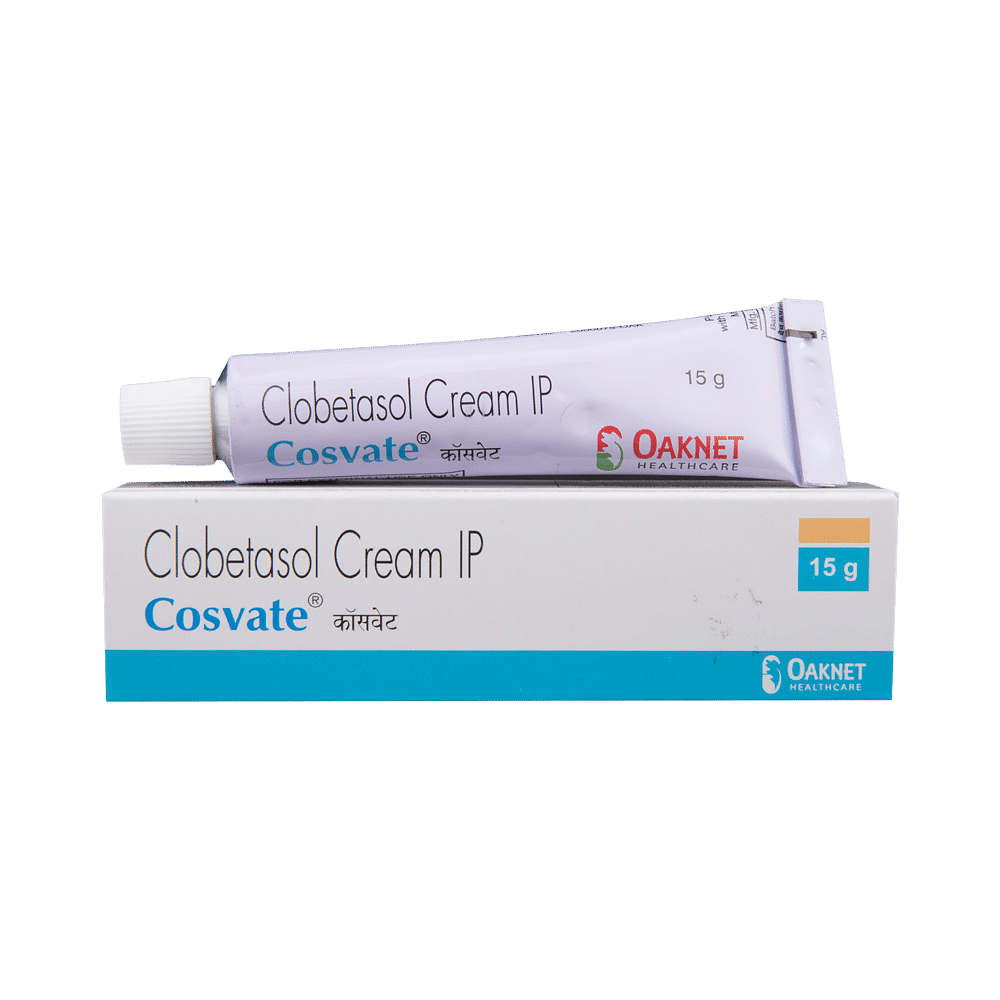
Cosvate Cream
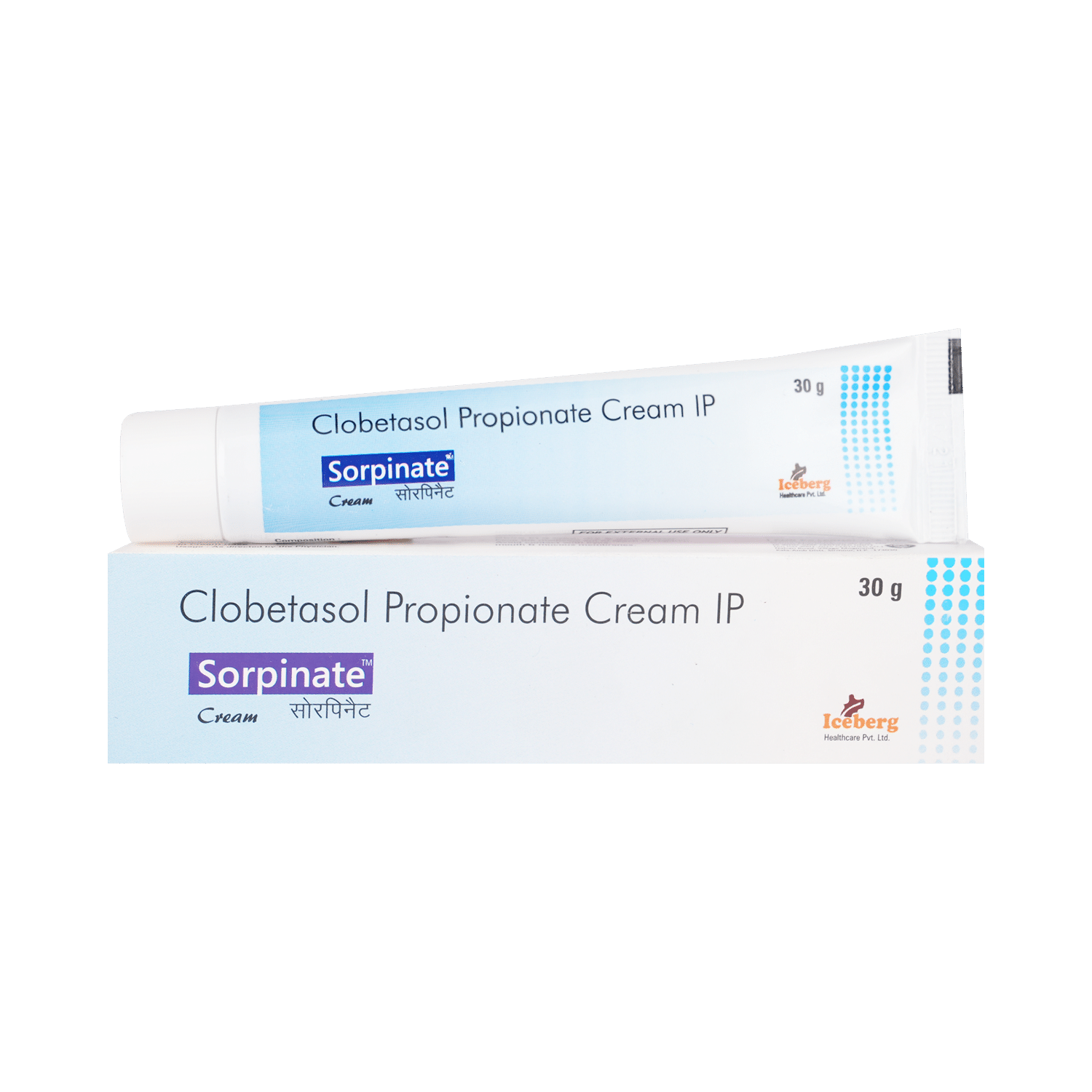
Sorpinate Cream

Clop-E Cream
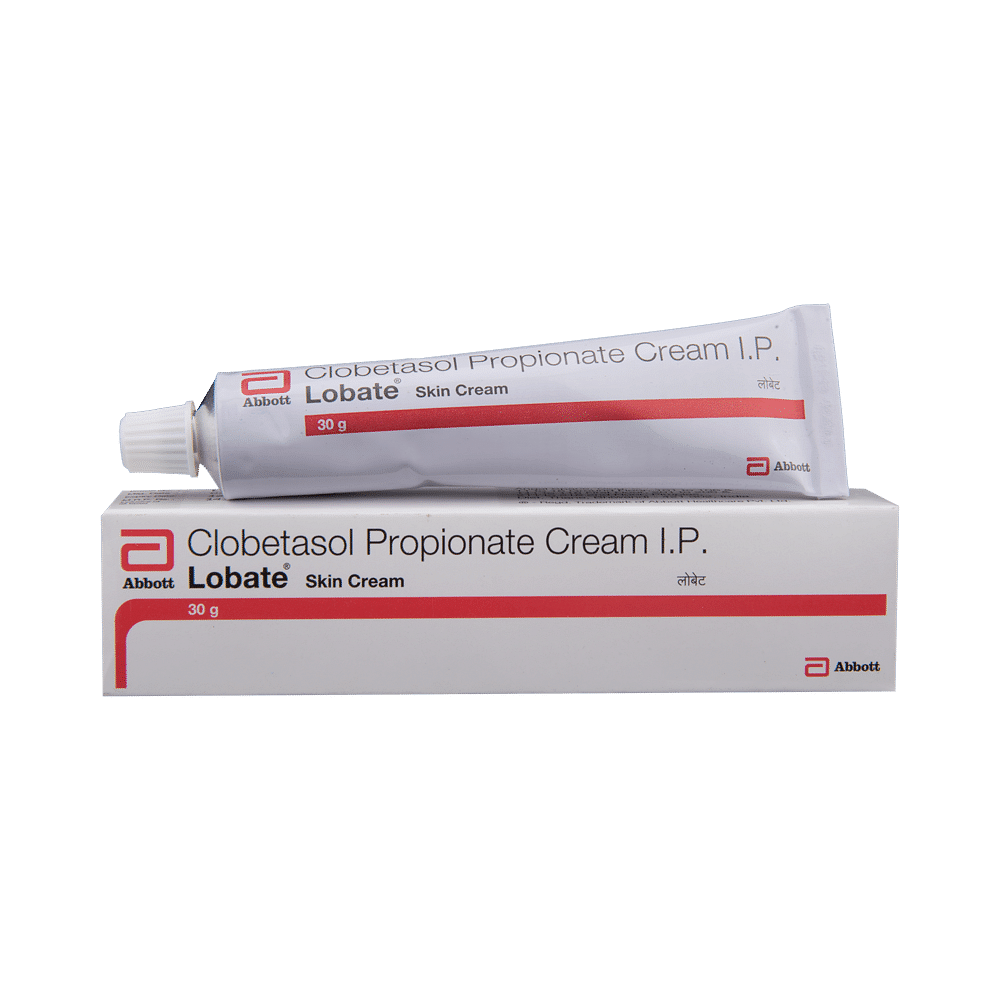
Lobate Cream
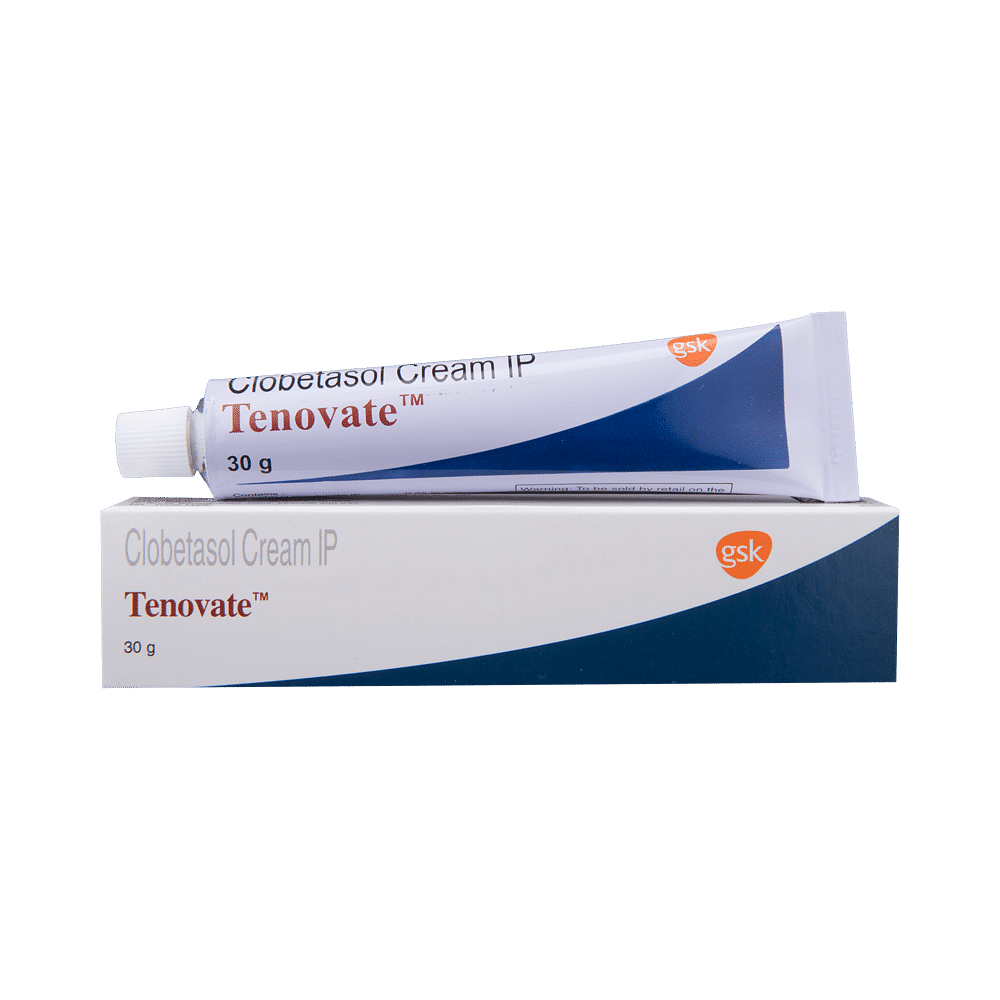
Tenovate Cream

Cataderm Cream

Zemanil 0.05% Cream

Zincort Cream
Frequently asked questions
Can Cataderm Cream be used long-term?
No, Cataderm Cream should not be used for long-term use. The doctor typically prescribes it for 2 consecutive weeks only. However, treatment may be longer for chronic inflammatory conditions requiring extended care.
Does Cataderm Cream cause severe skin reactions?
Severe skin reactions are uncommon with Cataderm Cream. As an anti-inflammatory medication, it's used to treat skin diseases, skin reactions and eczemas. However, individuals with hypersensitivity may experience a reaction. It is important to leave the affected area uncovered after applying Cataderm Cream as occlusive dressings (air- and water-tight dressing) could lead to skin reactions. The medicine itself may not cause a reaction but added excipients with medications can lead to a reaction in some cases. If you encounter any skin reactions, inform your doctor immediately.
Can Cataderm Cream be used on the face?
No, Cataderm Cream should not be used on the face. In addition, Cataderm Cream should not be used on the armpits (axillae), groin, or if there is atrophy (wasting away of tissues) at the treatment site. In certain circumstances, use by doctors is possible but only after consultation. Use on the face should be limited to a maximum of 5 days.
Can Cataderm Cream be used on children?
Cataderm Cream is not recommended for use in children less than one year of age. It's also not recommended for older children and adolescents as the side effects are more common in them. The pediatric population has a higher risk of immune system suppression, making them prone to other diseases and atrophy. Use should be limited in rare cases by doctors only.
Can we use Cataderm Cream for infections?
Cataderm Cream is not an antimicrobial or antifungal agent. It's a corticosteroid medication that suppresses the immune system and increases the risk of infection. Bacterial infections can worsen if the infected area is covered with a dressing after using Cataderm Cream. If the inflammatory lesions get infected or there is any spread of infection, contact your doctor immediately. The doctor will withdraw the use of Cataderm Cream and provide appropriate antimicrobial therapy.
Can I stop taking Cataderm Cream when my symptoms are relieved?
No, do not discontinue Cataderm Cream before finishing the entire course even if your symptoms improve. Continuing treatment until completion may help prevent your symptoms from returning.
Does Cataderm Cream cause dangerous skin reactions?
Local skin reactions are uncommon with Cataderm Cream. This medication is an anti-inflammatory drug used to treat skin diseases, skin reactions and eczemas. However, individuals with hypersensitivity may experience a reaction. It's important to leave the affected area uncovered after applying Cataderm Cream as occlusive dressings (air- and water-tight dressing) could lead to skin reactions. If not by the medicine itself, sometimes reactions are caused by added excipients in medications. Inform your doctor immediately if you encounter any skin reactions.


